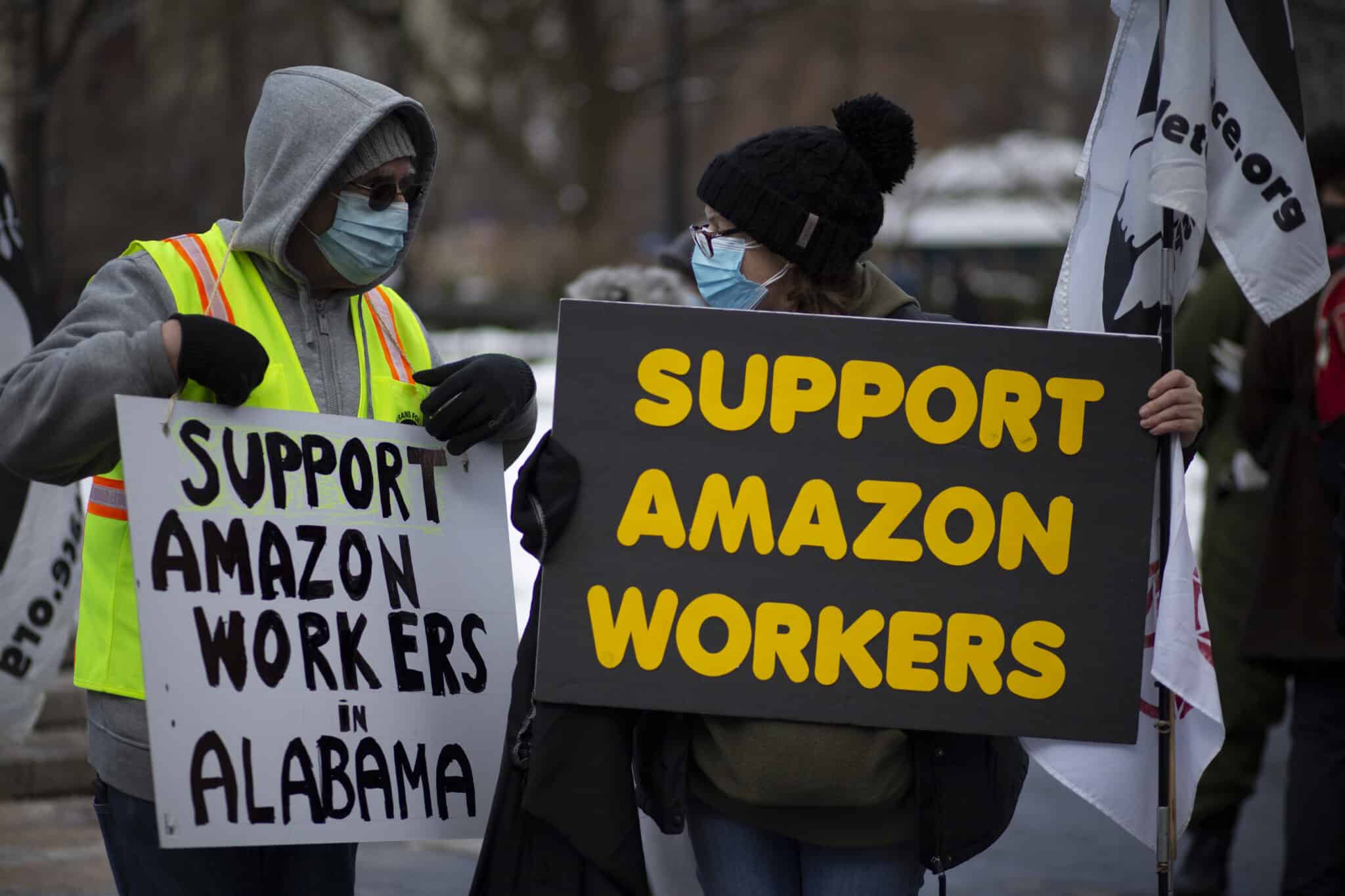Hannah Finnie is a writer in Washington, D.C. interested in the intersections of work and culture. She is a graduate of Harvard Law School.
Yesterday the U.S. Senate voted down President Biden’s nominee to lead the Department of Labor’s Wage and Hour Division, on a mostly party-line vote that got three Democrats to vote no alongside every Republican senator. The nominee was David Weil, who previously held the role under President Obama. He has written extensively about how modern corporations have found ways to engineer large profits at the expense of workers’ pay, benefits, and conditions (he’s the author of the book “The Fissured Workplace,” which explains this phenomenon). The three Democrats to vote no were Senator Manchin (D-W.Va.), and Sens. Kyrsten Sinema and Mark Kelly, both of Arizona. Business interests largely opposed Weil’s nomination.
As Anita noted yesterday, the second Bessemer, Alabama Amazon warehouse unionization vote is currently underway. The first vote was riddled with claims by the RWDSU (Retail, Wholesale, and Department Workers Union), the union representing the warehouse workers, that Amazon had improperly interfered with the vote. The NLRB subsequently ruled for the union and agreed that Amazon had improperly interfered with the previous union vote, leading to this second effort. As of Thursday night, the vote was too close to call, with enough votes being challenged to swing the outcome of the election.
However, there’s also a second Amazon unionization vote underway. A Staten Island, New York Amazon facility is also currently counting votes (again as of Thursday night). The group representing the workers, the Amazon Labor Union, says that the pro-union votes have the lead as of the latest count.
Notably, Amazon hired the consulting polling firm Global Strategy Group (GSG), which is closely aligned with Democratic politicians and issue-based campaigns, to help roll out its anti-union strategy. On its website, GSG labels itself as “top Democratic pollsters” whose work “was pivotal in helping Democrats secure today’s majorities in the US House of Representatives and Senate.”






Daily News & Commentary
Start your day with our roundup of the latest labor developments. See all
June 30
Antidiscrimination scholars question McDonnell Douglas, George Washington University Hospital bargained in bad faith, and NY regulators defend LPA dispensary law.
June 29
In today’s news and commentary, Trump v. CASA restricts nationwide injunctions, a preliminary injunction continues to stop DOL from shutting down Job Corps, and the minimum wage is set to rise in multiple cities and states. On Friday, the Supreme Court held in Trump v. CASA that universal injunctions “likely exceed the equitable authority that […]
June 27
Labor's role in Zohran Mamdani's victory; DHS funding amendment aims to expand guest worker programs; COSELL submission deadline rapidly approaching
June 26
A district judge issues a preliminary injunction blocking agencies from implementing Trump’s executive order eliminating collective bargaining for federal workers; workers organize for the reinstatement of two doctors who were put on administrative leave after union activity; and Lamont vetoes unemployment benefits for striking workers.
June 25
Some circuits show less deference to NLRB; 3d Cir. affirms return to broader concerted activity definition; changes to federal workforce excluded from One Big Beautiful Bill.
June 24
In today’s news and commentary, the DOL proposes new wage and hour rules, Ford warns of EV battery manufacturing trouble, and California reaches an agreement to delay an in-person work mandate for state employees. The Trump Administration’s Department of Labor has advanced a series of proposals to update federal wage and hour rules. First, the […]